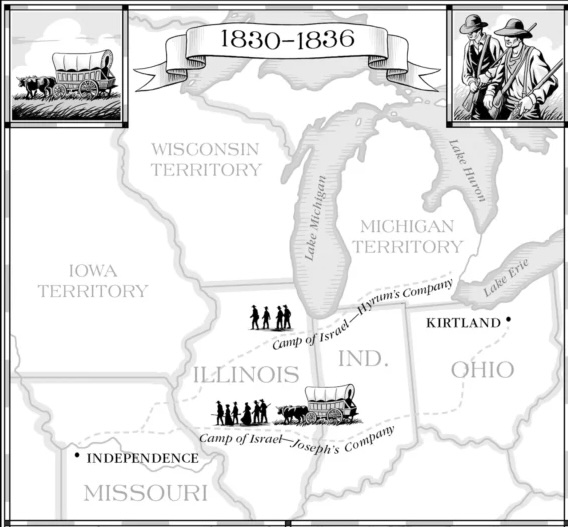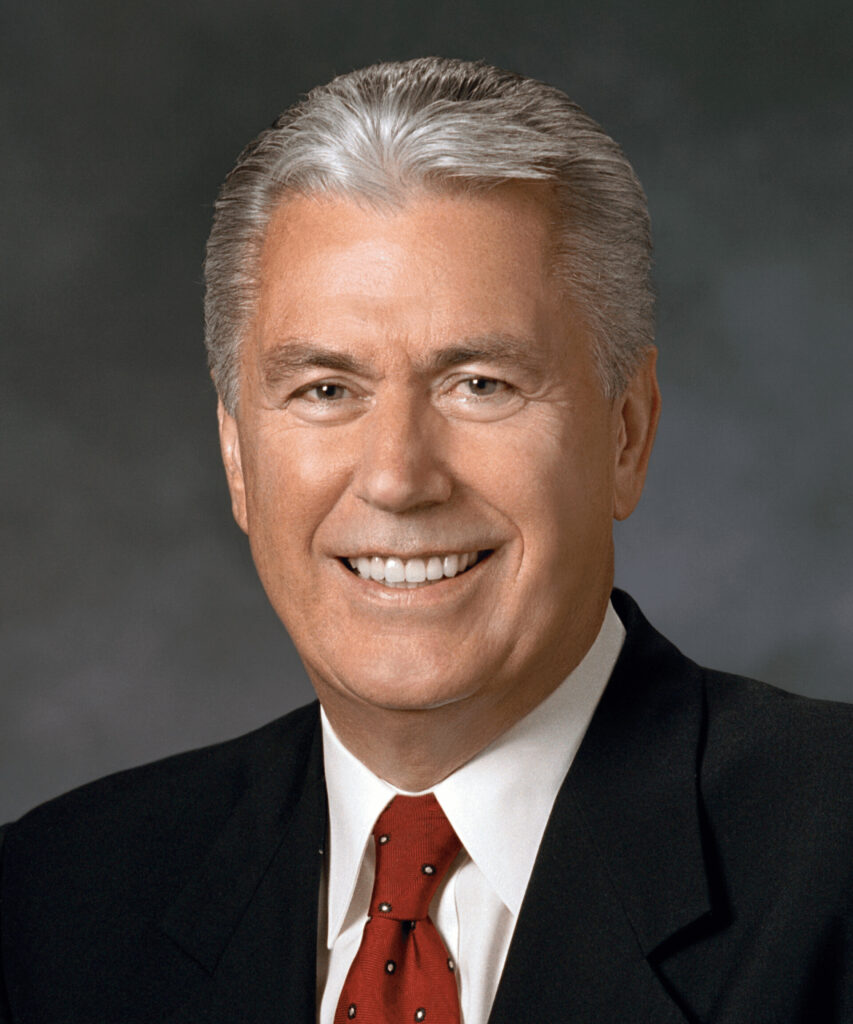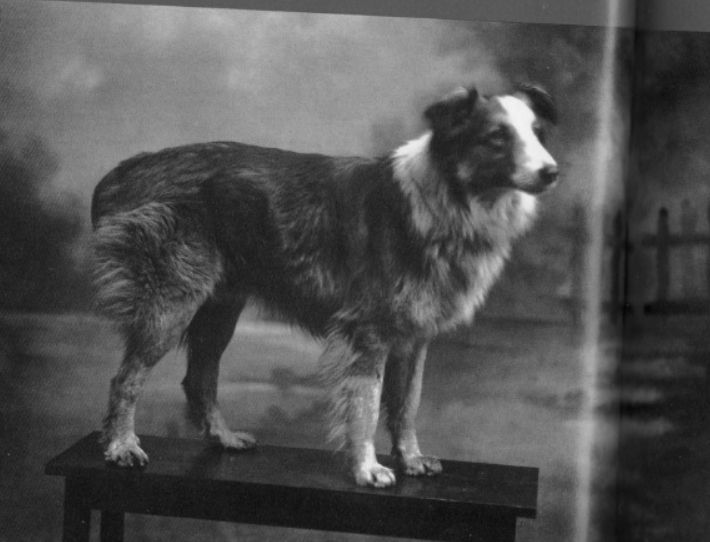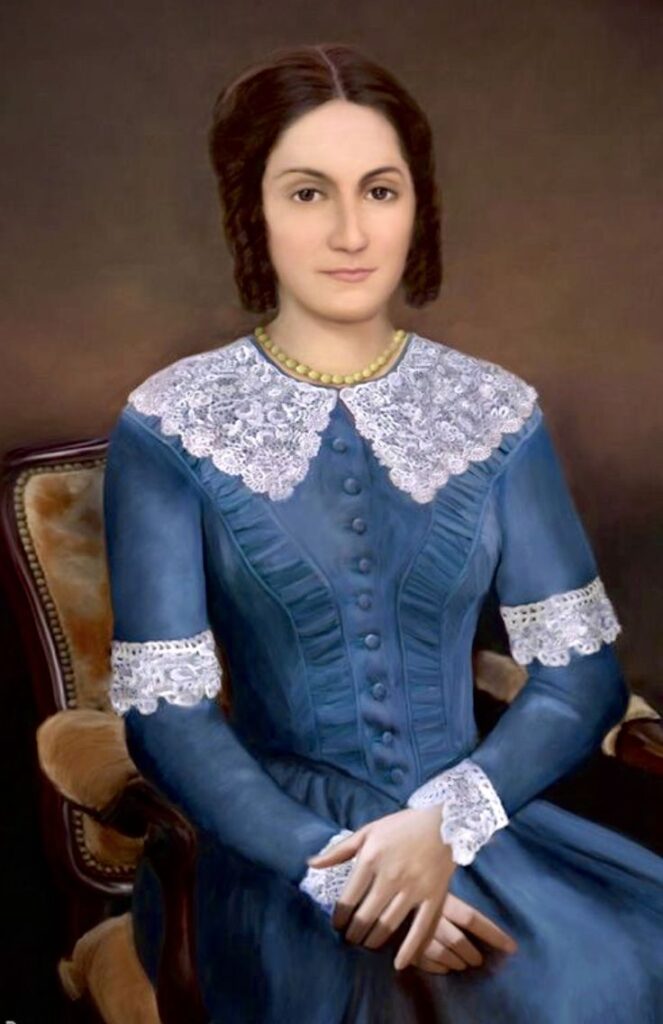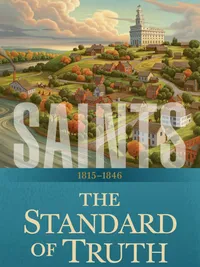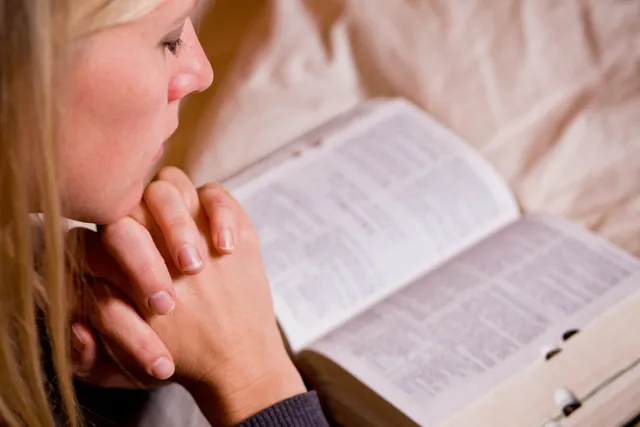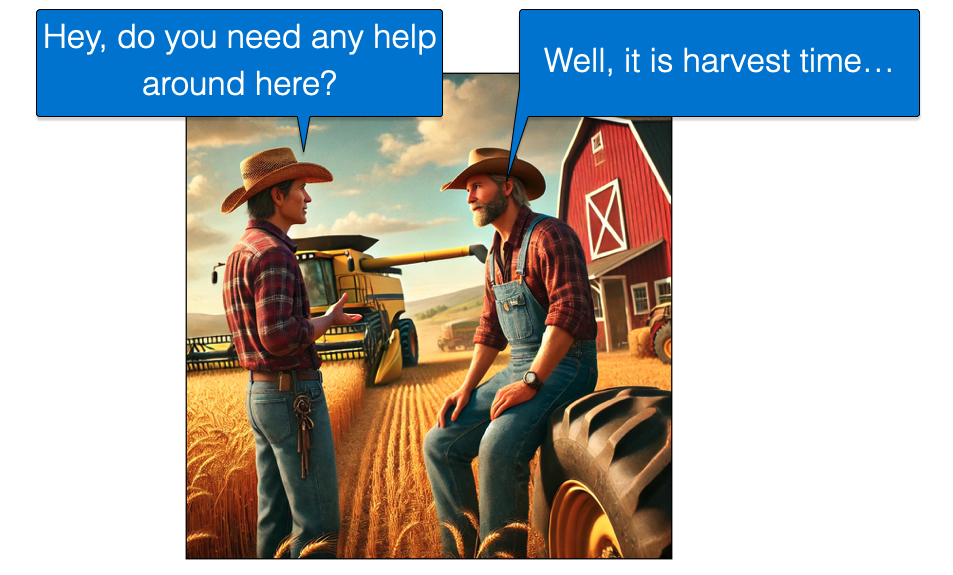Later in the summer of 1830, Joseph and Emma paid off their farm with the help of friends and moved to Fayette so Joseph could devote more time to the church.16 After they arrived, however, they learned that Hiram Page, one of the Eight Witnesses and a teacher in the Aaronic Priesthood, had started to seek revelations for the church through what he thought was a seer stone.17 Many Saints, including Oliver Cowdery and some members of the Whitmer family, believed these revelations were from God.18
Joseph knew he was facing a crisis. Hiram’s revelations mimicked the language of scripture. They spoke of the establishment of Zion and the organization of the church, but at times they contradicted the New Testament and truths the Lord had revealed through Joseph.
Unsure of what to do, Joseph stayed up praying one night, pleading for guidance. He had experienced opposition before, but not from his friends. If he acted too forcefully against Hiram’s revelations, he could offend those who believed in them or discourage faithful Saints from seeking revelation on their own.19 But if he did not condemn the false revelations, they could undermine the authority of the Lord’s word and divide the Saints.
After many sleepless hours, Joseph received a revelation directed to Oliver. “No one shall be appointed to receive commandments and revelations in this church excepting my servant Joseph Smith,” the Lord declared, “for all things must be done in order, and by common consent in the church.” The Lord directed Oliver to teach this principle to Hiram.
The revelation then called Oliver to go nearly a thousand miles to the western edge of the United States to preach the restored gospel to American Indians, who were remnants of the house of Israel. The Lord said that the city of Zion would be built near these people, echoing the Book of Mormon’s promise that God would establish the New Jerusalem on the American continent prior to the Second Coming of Christ. He did not identify the city’s exact location, but He promised to reveal that information at a later time.20
A few days later, at a conference of the church, the Saints renounced Hiram’s revelations and unanimously sustained Joseph as the only one who could receive revelation for the church.21
The Lord called Peter Whitmer Jr., Ziba Peterson, and Parley Pratt to join Oliver on the mission to the West.22 Emma and other women, meanwhile, began making clothes for the missionaries. Working long hours, they spun wool into yarn, wove or knitted the yarn into cloth, and stitched the cloth together piece by piece.23
Parley had recently returned to Fayette with Thankful after sharing the gospel with her and other members of his family. When he left for the West, she moved in with Mary Whitmer, who gladly welcomed her into her home.
On the way to Missouri, Parley planned to take the other missionaries to the state of Ohio, where his former pastor, Sidney Rigdon, lived. Parley hoped he would be interested in their message.24
That same summer, in a town two days’ journey from Fayette, Rhoda Greene found Samuel Smith, the prophet’s brother, on her doorstep. Rhoda had met Samuel earlier that year when he left a copy of the Book of Mormon at her house. Her husband, John, was a traveling preacher for another faith, and he thought the book was nonsense, but he had promised to take it with him on his circuit and collect the names of anyone interested in its message.
Rhoda invited Samuel inside and told him no one had shown any interest in the Book of Mormon so far. “You will have to take the book,” she said. “Mr. Greene does not seem to feel like buying it.”
Samuel took the Book of Mormon and was turning to leave when Rhoda mentioned that she had read it and liked it. Samuel paused. “I will give you this book,” he said, returning the copy. “The Spirit of God forbids my taking it away.”
Rhoda felt overcome with emotion as she took the book back. “Ask God to give you a testimony of the truth of the work,” Samuel said, “and you will feel a burning sensation in your breast, which is the Spirit of God.”
Later, after her husband came home, Rhoda told him about Samuel’s visit. At first John was reluctant to pray about the book, but Rhoda convinced him to trust Samuel’s promise.
“I do know that he would not tell an untruth,” she said. “I know he must be a good man if there ever was one.”
Rhoda and John prayed about the book and received a testimony of its truth. They then shared it with their family and neighbors, including Rhoda’s younger brother Brigham Young and his friend Heber Kimball.25
In the fall, thirty-eight-year-old Sidney Rigdon listened politely as Parley Pratt and his three companions testified of a new work of scripture, the Book of Mormon. But Sidney was not interested. For years, he had exhorted people in and around the village of Kirtland, Ohio, to read the Bible and return to the principles of the New Testament church. The Bible had always guided his life, he told the missionaries, and it was enough.26
“You brought the truth to me,” Parley reminded Sidney. “I now ask you as a friend to read this for my sake.”27
“You must not argue with me on the subject,” Sidney insisted. “But I will read your book and see what claim it has upon my faith.”28
Parley asked Sidney if they could preach to his congregation. Although he was skeptical of their message, Sidney gave them permission.
After the missionaries left, Sidney read parts of the book and found he could not dismiss it.29 By the time Parley and Oliver preached to his congregation, he had no desire to warn anyone against the book. When he rose to speak at the end of the meeting, he quoted the Bible.
“Prove all things,” he said, “and hold fast that which is good.”30
But Sidney remained uncertain about what to do. Accepting the Book of Mormon would mean losing his employment as a pastor. He had a good congregation, and they provided him, his wife, Phebe, and their six children with a comfortable life. Some people in the congregation were even building a home for them.31 Could he really ask his family to walk away from the comfort they enjoyed?
Sidney prayed until a sense of peace rested over him. He knew the Book of Mormon was true. “Flesh and blood hath not revealed it unto me,” he exclaimed, “but my Father which is in heaven.”32
Sidney shared his feelings with Phebe. “My dear,” he said, “you have once followed me into poverty. Are you again willing to do the same?”
“I have counted the cost,” she replied. “It is my desire to do the will of God, come life or come death.”33
In the fall of 1830, not far from Kirtland, fifteen-year-old Lucy Morley finished her usual housework and took a seat beside her employer, Abigail Daniels. As Abigail worked her loom, moving a weaving shuttle back and forth through crisscrossing threads, Lucy wound yarn onto thin spools. The cloth they wove would go to Lucy’s mother in exchange for Lucy’s services around the Daniels house. With many children under her roof, and no teenage daughters, Abigail relied on Lucy to help keep her family clean and fed.
While the two worked side by side, they heard a knock at the door. “Come in,” Abigail called out.
Glancing up from her spool, Lucy saw three men enter the room. They were strangers, but they were well dressed and looked friendly. All three of them appeared to be a few years younger than Abigail, who was in her early thirties.
Lucy stood up and brought more chairs into the room. As the men sat down, she took their hats and returned to her seat. The men introduced themselves as Oliver Cowdery, Parley Pratt, and Ziba Peterson, preachers from New York who were passing through town on their way to the West. They said the Lord had restored His true gospel to their friend, a prophet named Joseph Smith.
As they spoke, Lucy quietly attended to her work. The men talked about angels and a set of gold plates the prophet had translated by revelation. They testified that God had sent them on their mission to preach the gospel one last time before the Second Coming of Jesus Christ.
When they finished their message, the rhythmic clatter of Abigail’s loom stopped, and the woman turned around on her bench. “I do not want any of your damnable doctrine taught in my house,” she said, angrily waving the shuttle in their faces.
The men tried to persuade her, testifying that their message was true. But Abigail ordered them to leave, saying she did not want them polluting her children with false doctrine. The men asked if she would at least feed them. They were hungry and had not eaten all day.
“You cannot have anything to eat in my house,” Abigail snapped. “I do not feed impostors.”
Suddenly, Lucy spoke up, horrified that Abigail would speak to servants of God so rudely. “My father lives one mile from here,” she said. “He never turns anyone hungry from his door. Go there and you will be fed and cared for.”
Fetching their hats, Lucy followed the missionaries outside and showed them how to get to her parents’ house. The men thanked her and started down the road.
“God bless you,” they said.
After the men were out of sight, Lucy went back into the house. Abigail was at her loom again, running the shuttle back and forth. “I hope you feel better now,” she said to Lucy, clearly irritated.
“Yes, I do,” replied Lucy.1
As Lucy promised, the three missionaries found a hearty meal at the Morley home. Her parents, Isaac and Lucy, were members of Sidney Rigdon’s congregation, and they believed that followers of Christ should share their goods and property with each other as one large family. Following the example of saints in the New Testament who tried to have “all things common,” they had opened their large farm to other families who wanted to live together and practice their beliefs separate from the competitive, often selfish world around them.2
That evening, the missionaries taught the Morleys and their friends. The families responded to the missionaries’ message of preparing for the Savior’s return and millennial reign, and around midnight, seventeen people were baptized.
In the days that followed, more than fifty people around Kirtland flocked to the missionaries’ meetings and asked to join the church.3 Many of them were living on the Morleys’ farm, including Pete, a freed slave whose mother had come from West Africa.4 Even Abigail Daniels, who had rejected the missionaries so quickly, embraced their message after she and her husband listened to them preach.5
As the church grew in Ohio, particularly among Sidney’s followers, Oliver reported the good news to Joseph. Every day more people were asking to hear their message. “There is considerable call here for books,” he wrote, “and I wish you would send five hundred.”6
As pleased as he was with their success in Ohio, though, Oliver knew the Lord had called them to preach to the American Indians who lived beyond the western border of the United States. He and the other missionaries soon left Kirtland, taking with them a new convert named Frederick Williams. Frederick was a doctor, and at forty-three, he was the oldest man in the company.7
